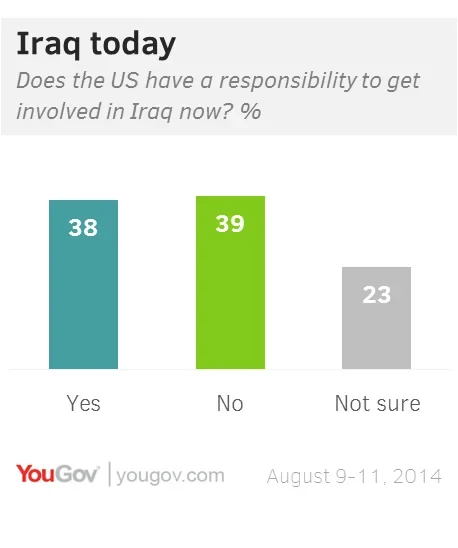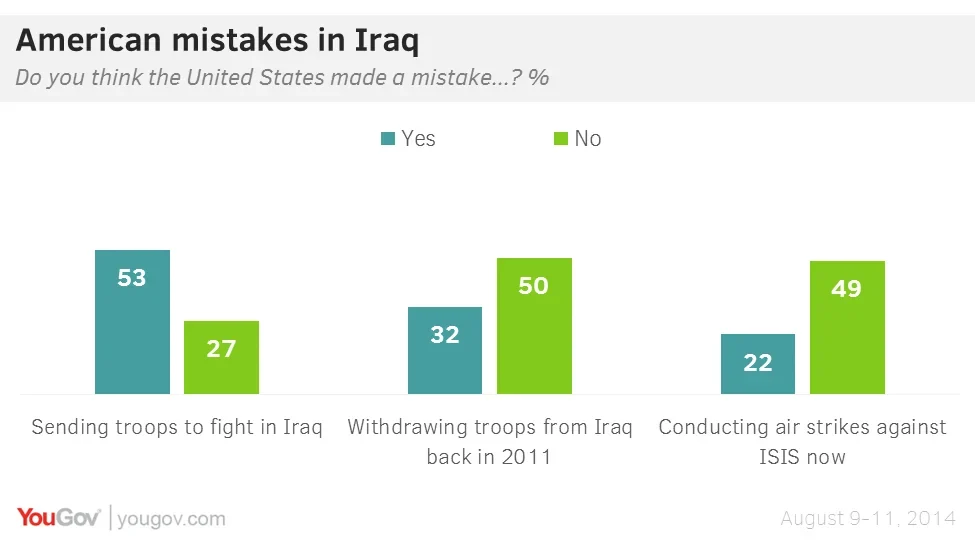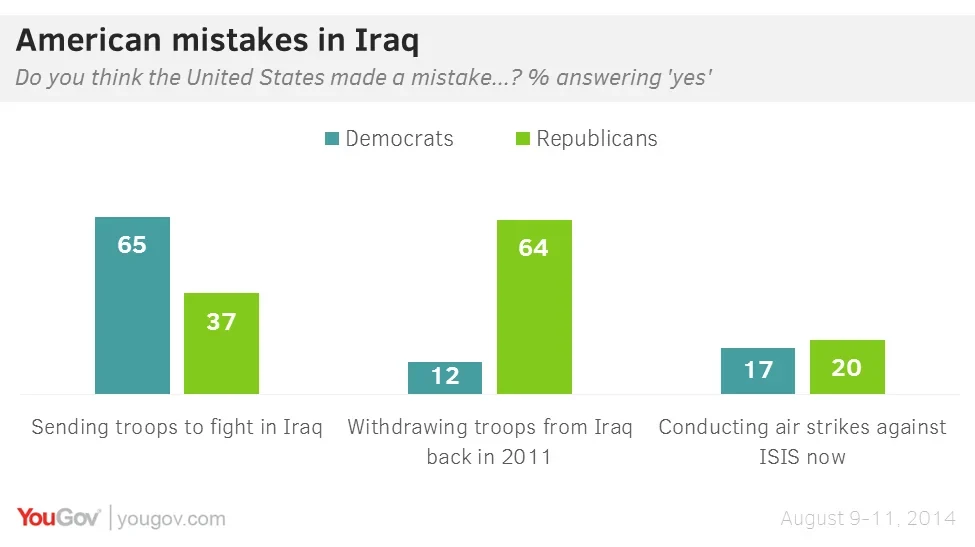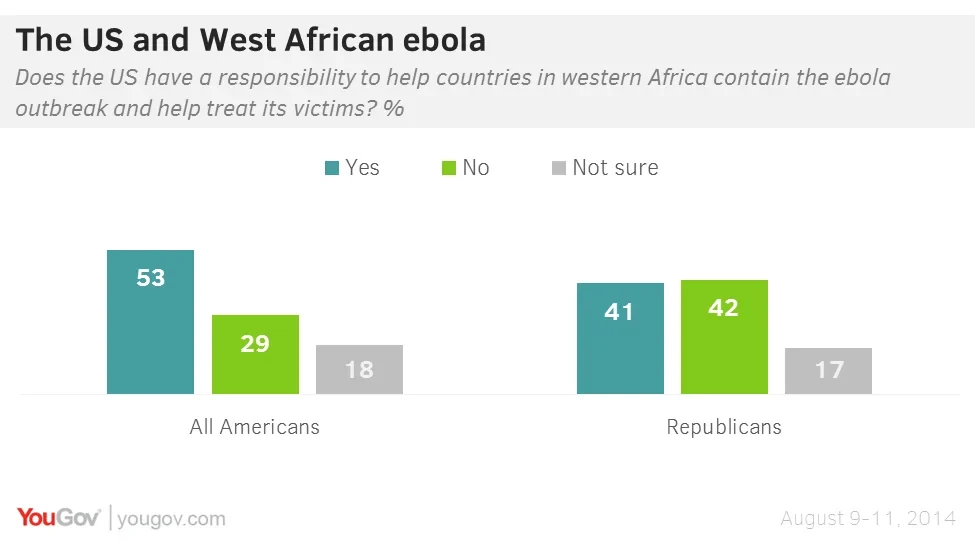Americans are divided on whether or not the US has a responsibility towards Iraq today, and even on other issues the public can be hesitant about the US getting involved
For the last few years, especially after losses in Iraq and Afghanistan, Americans have shied away from military involvement overseas. While humanitarian crises are a different matter, the latest Economist/YouGov poll shows less support for engagement in western Africa than Americans felt about humanitarian aid in the 1990’s.

Americans are particularly unwilling to take on any special role when it comes to Iraq – a war that Americans have judged to be a mistake beginning in polls conducted nearly ten years ago. Asked if the United State had a responsibility to get involved in Iraq now, Americans are divided.
Although Republicans are more likely than Democrats and independents to say the U.S. has a responsibility in Iraq, the differences are not as large as they often are on issues today. By 50% to 31%, Republicans see a responsibility for the U.S. in Iraq. Democrats disagree 42% to 31%.
The use of the military has its limits. Half the public agrees it was not a mistake to withdraw U.S. troops from Iraq, but there are some military actions that many find acceptable. They seem to involve not placing U.S. ground troops directly in harm’s way. By more than two to one, Americans say it is not a mistake for the U.S. to conduct air strikes against ISIS fighters.

That is a difference between opinions about air strikes and opinions about ground troops in Iraq. The withdrawal of Americans troops from Iraq took place during the Obama Administration, and partisans react accordingly. 68% of Democrats say that decision was not a mistake, 64% of Republicans say it was. The war in Iraq began under a Republican President in 2003, and there are party differences about that too, though not quite as stark. 65% of Democrats view the start of the war in Iraq as a mistake; fewer Republicans, 37% agree. 49% of Republicans say sending troops to Iraq in 2003 was not a mistake.
But there are few partisan differences when it comes to the use of airstrikes in Iraq. Just one in five Republicans and 17% of Democrats say that action is a mistake.

Using military force for humanitarian purposes anywhere gets limited support. 39% would favor that, while 35% would not.
But Americans feel differently about some humanitarian crises, however, especially when helping may not mean the use of military force. More than half the public believes the United States has a responsibility to help countries in western Africa deal with the Ebola outbreak. There is support in all regions and income groups (with the most well-off most in favor), from men and women, and all age groups. But Republicans are less sure the country has that responsibility. As many say it does not and think it does.

The 53% agreeing that the U.S. has a role to place in the Ebola outbreak is much lower than the percentages of Americans who expressed support for helping the victim of the Haiti earthquake in 2010 (84% in a CBS News Poll) or to assist those suffering in Kosovo (80% in April 1999). In fact, the general principle that the United States had a responsibility to help with humanitarian crises around the world has been as high as 67% in 1992. That willingness is lower today.
Image: PA
Full results can be found here.
Economist/YouGov poll archives can be found here.








